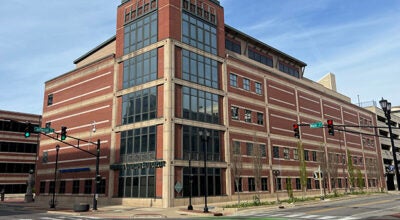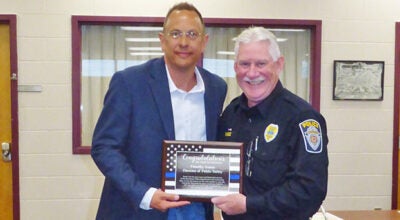Environment expert lectures at Fernwood about climate change
Published 11:08 pm Thursday, November 11, 2010
In 1968 American poet Archibald MacLeish, after seeing photos of the Earth from space, penned these words: “To see the Earth as it truly is, small and blue and beautiful in that eternal silence where it floats, is to see ourselves as riders on the Earth together.”
Rosina Bierbaum, the dean of the School of Natural Resources and Environment at the University of Michigan, took that quotation one step further in her lecture at Fernwood Botanical Garden Tuesday night.
“What we’ve learned since then is we’re not just riders anymore,” she said. “We’re actually drivers.”
And Bierbaum, who co-authored the World Development Report 2010 for the World Bank, doesn’t like the direction the drivers are taking the world.
Speaking before an audience of about 50 people about the issue of climate change and sustainability, Bierbaum reported the Earth’s atmosphere now contains 35 percent more carbon dioxide than it did in the pre-industrial era. The levels are higher than they’ve been in more than 700,000 years.
Bierbaum said that means climate change is a problem right now.
“It’s affecting poor countries right now,” she said. “As I worked on the World Development Report, we did consultations with some 35 countries. African countries said they’re absolutely certain that climate is changing.”
They reported having more draughts and floods, in what they termed “climate shock.”
Bierbaum said from 1850 until today, 64 percent of carbon dioxide emissions come from high income countries, but 80 percent of the damages are expected to be born by developing nations.
She also reported that in the United States there are 19 tons of carbon dioxide emissions per person per year, in comparison to some developing countries at as little as one ton per person per year.
Bierbaum is concerned by the fact that only $13 billion in world public funding is going to energy research and development.
“We haven’t really tried,” she said.
Bierbaum said there are plenty of options for reducing carbon emissions and slowing climate change.
“If U.S. SUVs got the European average of 45 miles per gallon, the pollution that would be averted would be enough space to give the 1.6 billion people in the world who don’t have electricity five 50-watt light bulbs,” she said.
She also said Americans have the capability of building houses 65 percent more efficient than they are currently being built.
She said the technology is there but the incentive to do it is not.
Bierbaum also called for the research and development of carbon capture and wind, solar and nuclear energy , which she said has “huge potential.”
Wind power in Michigan, for example, could produce 20 percent of the electricity for the state.
While there are clear early signs of climate change, such as Greenland and arctic sheets losing mass, arctic sea ice decreasing and more intense and longer draughts, Bierbaum says it will only get worse unless action is taken.
“By the end of the century, both summer and winter temperatures will be perhaps about 10 degrees more than now,” she said.
Bierbaum is hoping the United Nations Climate Chang Conference in Cancun, Mexico later this month will result in a global climate treaty “with teeth,” but she said it looks doubtful.






